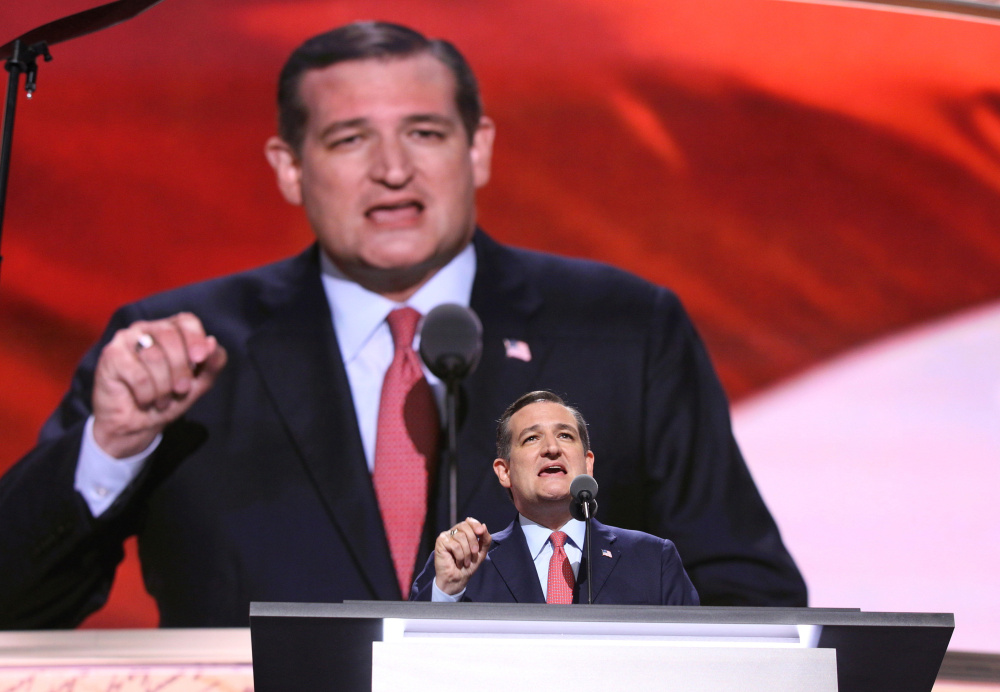WASHINGTON — The day President Trump proposed deep cuts to government programs, 10 of the most passionate, relentless budget-cutters in Congress gathered to talk about how to promote government austerity. At The Breakers, the ultra-plush Palm Beach, Florida, resort.
The Republican congressmen stayed in hotel rooms marked down to $495 from the customary $810 nightly rate. Several brought along their spouses. They participated in panel discussions for several hours, but many stayed through the weekend at the oceanfront resort that promises “unapologetic luxury, seaside glamour and world-class service.”
Picking up the tab for the congressmen’s travel, lodging and food was the conservative Club for Growth, which has been unsparing in pushing for a leaner government.
The day the club’s three-day annual winter economic conference began in March, club president David McIntosh praised the White House’s budget proposal for beginning “the much-needed work of making major cuts in agencies like the EPA, and ending the waste of taxpayer dollars that are being poured into things like federally-funded TV and radio.”
COMMON CAUSE TAKES ISSUE
“President Trump and (Budget) Director Mick Mulvaney are showing the political will to take the ax to many bloated and unnecessary programs,” McIntosh said. “We hope Congress will follow suit, and that this is just the start of an ongoing effort to truly cut the size and scope of the federal government.”
Eight House members and two senators – all Republican – filed travel disclosure forms with the House and Senate for the trip, registering the cost between $1,995 and $3,256.
They included Sens. Ted Cruz of Texas and Pat Toomey of Pennsylvania, along with House Freedom Caucus chairman Rep. Mark Meadows of North Carolina, Ted Budd of North Carolina, Raul Labrador of Idaho, Rod Blum of Iowa, Justin Amash of Michigan, John Ratcliffe of Texas, and Andy Biggs and David Schweikert of Arizona.
The trips were legal, involved no taxpayer dollars and were cleared, in the case of the House, by its Ethics Committee. Still, such retreats have long drawn the ire of government watchdog groups, which point to them as examples of well-connected groups that look to sway politicians with perks.
“No expense is too great to get a lawmaker’s attention, and what better way than to go on vacation in Palm Beach?” said Stephen Spaulding, chief of strategy at Common Cause. “The motivation for the Club (for Growth) is to get their phone calls returned and have their agenda in place. They spend money on getting members of Congress elected, and then to give them a vacation.”
CUTTING SPENDING
The Club for Growth cast the event, which it has held for more than a decade, as an opportunity for members of Congress and other participants to learn “about some of the most important issues facing our country.”
“To this end, the Club invites distinguished scholars, authors and policymakers to participate in the conference and discuss policies to grow our nation’s economy,” Club for Growth spokeswoman Rachael Slobodien said. “As an educational organization, the Club places great importance on working with elected officials to craft policy solutions that improve our nation’s economy and economic opportunities for all Americans.”
Topics at the annual event included policy discussions on unraveling government regulations and pushing for tax reform. One session’s title: “Holding Government Accountable: Investigating and Exposing Crony Capitalism, the Misuse of Taxpayer Funds and Other Governmental Corruption.”
Most of the attendees agreed with the Club for Growth’s take on government spending. Toomey, who received $400,000 in campaign contributions from the group in 2016, lauded Trump for looking to boost military spending and said that “after years of overspending” he was encouraged that Trump was proposing cuts to non-defense spending.
“Everyday Americans diligently manage each dollar they make to live within their means, and they expect the federal government to do the same,” attendee Biggs said in a news release, adding that he was encouraged by Trump’s call to boost spending on national security and veterans “while also requiring the federal government to slash out-of-control spending.”
Labrador, though, voiced caution about the budget proposal, telling reporters that “the left” would not allow Trump to slash non-defense spending as deeply as he wanted. “We’re going to have to find a different way to balance the budget,” he said.
And like a number of other Republicans, Blum took issue with Trump’s initial call to trim the National Institutes of Health by $6 billion – out of a $32 billion budget.
Copy the Story LinkSend questions/comments to the editors.



Success. Please wait for the page to reload. If the page does not reload within 5 seconds, please refresh the page.
Enter your email and password to access comments.
Hi, to comment on stories you must . This profile is in addition to your subscription and website login.
Already have a commenting profile? .
Invalid username/password.
Please check your email to confirm and complete your registration.
Only subscribers are eligible to post comments. Please subscribe or login first for digital access. Here’s why.
Use the form below to reset your password. When you've submitted your account email, we will send an email with a reset code.